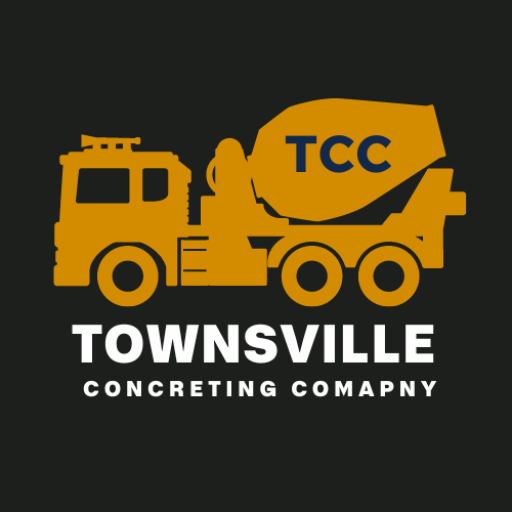Project Planning
A solid foundation is essential for any construction project in Townsville. This guide helps you navigate the crucial planning and preparation stages. A well-built foundation prevents cracking, settling, and costly repairs. However, proper planning goes beyond just the foundation itself. You need to consider access for concrete trucks, placement of materials, and potential disruptions to your property during the concrete foundation construction process. A detailed site plan is essential.
Assessing Your Needs
Define your project goals before starting. Consider the structure’s size, weight, purpose, and your long-term property goals. This clarity informs the right foundation type. Think about future extensions or additions – will your chosen foundation accommodate these? What are the implications for plumbing and electrical services? Careful consideration of these factors ensures a foundation suitable for your current and future needs.
Site Considerations
Thorough site assessment is crucial. A professional soil test reveals your soil’s load-bearing capacity. Consider the soil type (clay, sand, rock, or mixed), topography (sloped or level), and local building regulations. What is the water table like in your area? How will drainage be managed to prevent issues with the foundation? Are there any large trees nearby that could impact the foundation with their root systems? Addressing these site-specific factors is essential for a stable and durable foundation.
Budget Planning
Foundation choice impacts project cost. Slab foundations are cost-effective for single-story homes on level ground. Deeper foundations, like pier and beam, are necessary for multi-story buildings or sloped terrain, increasing expenses. Factor in not just the concrete itself, but also excavation, labor, reinforcement materials, and any necessary permits. Get multiple quotes from reputable contractors. Accurate budget planning prevents financial surprises during the construction process.
Foundation Types
Slab Foundations
Slab foundations are common for single-story homes on level ground. A single layer of reinforced concrete provides a simple, cost-effective, and durable solution. However, they may not be suitable for sloped sites or expansive clay soils common in Townsville. What thickness is required for your specific project? What type of reinforcement is recommended? Understanding these details ensures the right slab foundation for your project.
Footing Foundations
Footing (pier and beam) foundations suit sloped terrains, multi-story buildings, or areas with expansive clay. Concrete footings below the frost line support beams carrying the structure’s weight. They offer stability and flexibility. What are the spacing requirements for footings and beams? What size and depth are necessary for your project? Properly designed footing foundations provide long-term stability, especially in challenging soil conditions.
Retaining Wall Foundations
Retaining walls hold back soil, prevent erosion, and create usable space. Engineering considerations include wall height, soil type, and site-specific factors. What type of drainage is required behind the retaining wall? What materials are best suited for your specific retaining wall project? Addressing these factors ensures the retaining wall’s structural integrity and longevity.

Concrete Foundation Construction
Foundation construction involves site preparation, excavation, formwork construction, reinforcement, concrete pouring, curing, and formwork removal. The specific foundation type depends on soil conditions and structure size. What are the best practices for curing concrete in Townsville’s climate? How long will the entire process take? Understanding the construction process allows for better project management and timely completion.
Planning your foundation project effectively is crucial for its long-term success. A detailed checklist can help ensure you’ve considered all the critical aspects. That’s why we offer a Free Foundation Planning Checklist to guide you through the process. This checklist covers everything from site assessment and budget planning to choosing the right foundation type and understanding local regulations.
Ready to lay the groundwork for a successful project? Download our Free Foundation Planning Checklist today! Leave your email below, and we’ll send you the checklist instantly. Plus, get a complimentary 15-minute consultation to discuss your specific project needs.
Soil Conditions & Foundation Types
Local expertise is invaluable for understanding the nuances of different foundation types and soil conditions. Townsville’s expansive clay soils require specific considerations. How do different concrete mixes perform in expansive clay? What measures can be taken to mitigate the effects of soil movement? Understanding these factors is crucial for building a stable foundation in Townsville’s unique environment.
Common Foundation Problems
Expansive clay in Townsville can cause cracking and movement during droughts and heavy rainfall. Proper drainage and regular inspections are crucial for preventing costly repairs. What are the signs of foundation problems specific to expansive clay? How can these problems be addressed effectively? Early detection and prompt action can prevent minor issues from becoming major structural problems.
Maintaining Your Foundation
Regularly check for cracks, settlement, and water damage. Proper drainage diverts water, preventing erosion. Address minor issues promptly to avoid major structural problems. What is the recommended maintenance schedule for foundations in Townsville? What are the best methods for repairing minor cracks or damage? Regular maintenance ensures the longevity and stability of your foundation.
Local Expertise
Local concrete contractors understand Townsville’s unique soil conditions, weather patterns, and building regulations. This expertise ensures a foundation built to withstand local challenges. How do you choose a reputable and qualified contractor? What questions should you ask potential contractors? Choosing the right contractor is a crucial step in ensuring a successful foundation project.
Conclusion
A solid foundation is crucial for any construction project. Contact a local expert for a consultation. Their expertise and commitment to excellence ensure a lasting foundation. A well-planned foundation is an investment in the long-term stability and value of your property.
Having a comprehensive checklist can be invaluable when planning your foundation project. To help you get started, we’re offering a Free Foundation Planning Checklist. This checklist provides a step-by-step guide to ensure you’ve covered all the essential aspects, from site assessment to choosing the right contractor.
Don’t miss out on this valuable resource! Download our Free Foundation Planning Checklist now and start building your project on a solid foundation. Enter your email below, and we’ll send the checklist directly to your inbox, along with a free 15-minute consultation to discuss your project.



